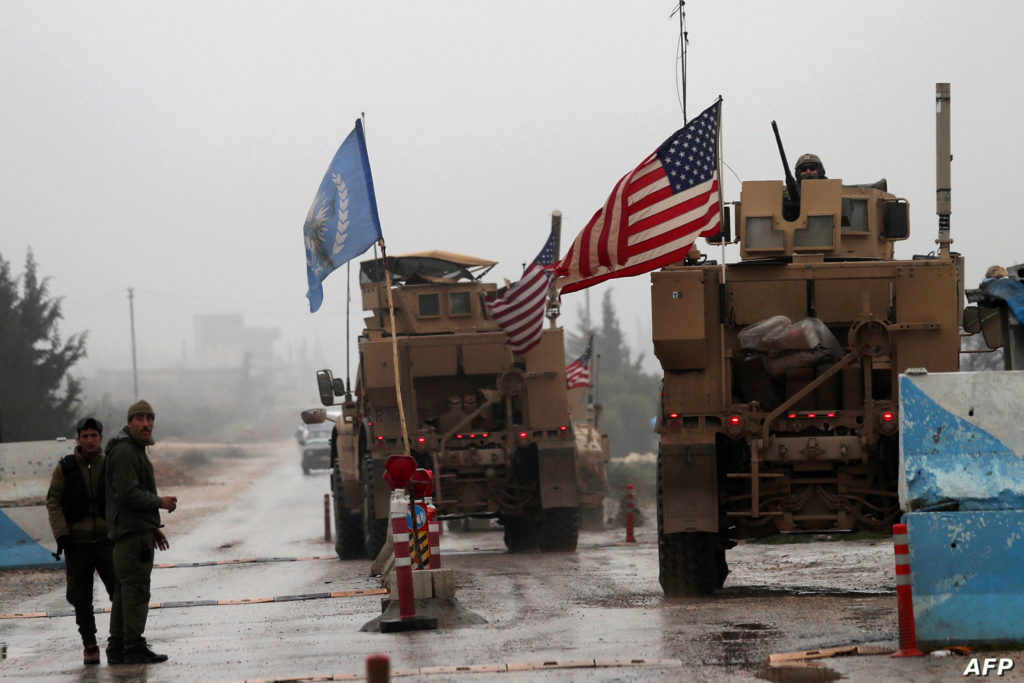Australia/Israel Review
Retreat in Syria
Nov 1, 2019 | Behnam Ben Taleblu

“So in war, the way is to avoid what is strong and to strike at what is weak,” notes the famed Chinese military strategist Sun Tzu.
US President Donald Trump’s decision to withdraw troops from northern Syria unfortunately clarifies for our adversaries that which is weak: American resolve in the Middle East.
Amid news of Turkey, home to the second biggest army in NATO, attacking Syria, and the US yet again abandoning the Kurds, it’s easy to forget that the Middle East has many hotspots simultaneously competing for American attention. But no matter the crisis du jour, it cannot be forgotten that Washington remains in the throes of a “maximum pressure” campaign against Iran, where resolve and perceptions of resolve matter greatly.
The Islamic Republic is both a nuclear rogue and malign regional force committed to overturning the status quo. For the past year, Washington has marshalled sanctions to isolate, punish, and coerce Iran. But the success behind maximum pressure is almost entirely due to economic forces, not politics.
Although the US Administration deserves immense credit for unilaterally restoring and expanding sanctions on Iran that have had a far greater impact than the previous administration’s efforts – and in record time – it has yet to integrate this success into a larger vision for the Middle East. Nor has it been able to meaningfully bolster this economic success with political and military tools. And worse, despite calling on the need to “push back” against Iran, the Administration appears intent on creating vacuums and signalling through its actions that it lacks the requisite resolve to contest Teheran by means other than sanctions.
Put differently, while maximum pressure (read: sanctions) are working, what isn’t is American foreign policy on a broader level.
It’s no wonder, then, that some of America’s partners in the region – like the Gulf Arabs – are playing a dangerous hedging game and gradually softening their stance on Iran. In the aftermath of the downing of an expensive American military drone, American partners are wondering where is the overwhelming response in defence of US interests and allied security that was promised just a few months ago.
Such a strategy, while presumably under the auspices of managing escalation, shifting to great-power competition, and keeping America out of regional wars, actually risks sucking the US in further, and at a time and place when it is least prepared to be present. It also inadvertently emboldens voices in Teheran that talk of Washington’s timidity and unreliability.
“Not only has the credibility of the threat and power of America significantly declined, but the Zionist regime no longer poses a threat,” touted the Commander of Iran’s notorious Islamic Revolutionary Guard Corps. That same official claimed that Iranian power managed to excise the “all options on the table” rhetoric from America’s vocabulary.
One would not be surprised if in the aftermath of the US withdrawal, Iran becomes more risk-tolerant when it comes to taking on Israel. US Secretary of State Mike Pompeo’s recent trip to Israel was aimed at assuaging Israeli fears over precisely this problem.
Iranian media outlets, such as those with links to Iran’s Supreme Leader, are now only too happy to report Israeli concerns about Iranian ascendancy in Syria, framed as the victory – read survival – of the dictator Bashar al-Assad. The same outlets are also only too happy to trace the history of America’s betrayal of the Kurds.
Such braggadocio stems not from any shortcoming of the economic pressure track, but the lack of follow-through on a more integrated policy that deals with Iran in the region, as was promised in 2017 by the White House.
In Iraq and Syria, Iran has worked hard to solidify gains after the collapse of central authority in both countries. Iran is similarly working on a “land corridor” to better supply and transport a diverse array of militias operating between Iraq and Syria in the service of Teheran’s revolutionary project. Rather than forcing Iran to pay a price for these actions, Washington has missed opportunities to impede its chief regional adversary’s freedom of movement. The most recent is a failure to lend support to Iraqis as they rise up against government corruption and Iranian interference.
All of this means that Washington is going to have a tougher time deterring Iran, as well as others, in the region. Recent reports indicate that the Administration is mulling leaving 200 troops in northeastern Syria. While this would be a welcome move, even if the Trump Administration changes its policy on Syria – as has been done before – previous local interlocutors and partners may already be dead, captured or gone at this stage in the conflict. Time is therefore running out to correct this mistake.
To distil Sun Tzu’s maxim for today’s Middle East, weakness is provocative. By withdrawing forces from northern Syria, Washington has given Teheran, as well as a constellation of other bad actors, a pale green light to have at it. The results, from counterterrorism to counter-Iran policy, are likely to be disastrous.
Behnam Ben Taleblu is a senior fellow at the Foundation for Defense of Democracies (@FDD), where he focuses on Iranian political and security issues. He has testified before the US Congress and Canadian Parliament and recently visited Australia as a guest of AIJAC. Reprinted from The Hill (thehill.com). © Foundation for Defense of Democracies, reprinted by permission, all rights reserved.
Tags: Iran, Israel, Kurds, Syria, United States






